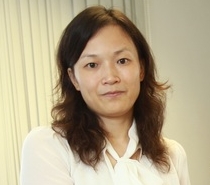
Professor of Computer Science and Engineering
“Developing my research results into industrial applications, especially in the area of digitized medicine, is one of the goals I am keen to pursue. I hope that I will be able to contribute to the development of this key area, and eventually help to make people happier”
Prof Qian Zhang joined the Department of Computer Science and Engineering in September 2005. She is also serving as Co-director of Huawei-HKUST Innovation Lab and the Director of the Digital Life Research Center at HKUST.
Prior to working at HKUST, Prof Zhang spent six years at Microsoft Research Asia, Beijing, where she was Research Manager of the Wireless and Networking Group. She received her BS, MS, and PhD degrees in Computer Science from Wuhan University, China, in 1994, 1996, and 1999 respectively.
Coming to HKUST was actually the result of a coincidental encounter, Prof Zhang said. While attending an international conference, friends from HKUST asked how she was doing. The question suddenly caused her to reflect on what she wanted to achieve. From then on, Prof Zhang decided she would like to pursue her research in a university environment, and HKUST became her first choice.
Prof Zhang has published more than 300 refereed papers in international leading journals and key conferences in the areas of wireless/internet multimedia networking, wireless communications and networking, wireless sensor networks, and overlay networking. She is the inventor of about 30 pending international patents. Her current research is on cognitive and cooperative networks, dynamic spectrum access and management, as well as wireless sensor networks. She is an active member of editorial boards and technical committees of the Institute of Electrical and Electronics Engineers (IEEE), the largest global organization dedicated to advancing technological innovation and excellence.
When asked for the recipe of her early success, the post-70s scientist said it might be related to her character, which seeks out and embraces research challenges. “I really like to explore areas that people haven’t touched before. If you are the first one to propose solutions to newly raised questions, it opens up room for innovation, even though the initial proposals may need to be further refined.”
Prof Zhang and her team completed an unprecedented survey and analysis of the comprehensive usage of spectrums in China, and proposed for the first time a method to optimize the usage of spectrum by primary users and secondary users, so that the primary users can seek support from secondary users to meet their business needs within a shorter period, freeing up more spectrum resource to secondary users, thus achieving a win-win scenario.
She also pioneered the design of a market model for wireless service operators to take part in double-tier spectrum auctioning. As this model can effectively boost the income of wireless service operators, it will therefore also boost the market potentials of cognitive radio and dynamic spectrum access technology.
"Cognitive radio technology and dynamic spectrum resource management have great significance to the future development of radio networks. Not only will it generate active discussion in academia, but it will also have extensive industrial application. The next challenge for me and my team will be to convert our basic research into marketable products." Prof Zhang said.
Digitized medicine is a new area that Prof Zhang would like to explore. “Digitized medicine has a tremendous future. You might even say that the situation is comparable to the start of the Internet.” She is now working with a start-up company specializing in medical digitization to create a remote, wireless health-monitoring platform.
“Developing my research results into industrial applications, especially in the area of digitized medicine, is one of the goals I am keen to pursue. I hope that I will be able to contribute to the development of this key area, and eventually help to make people happier,” she said.










